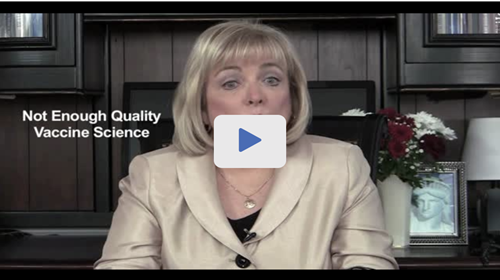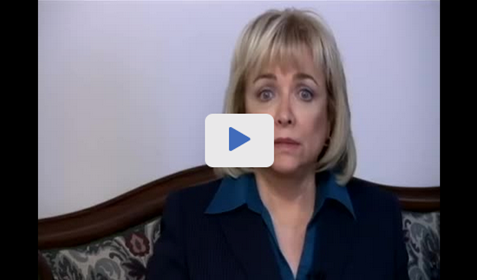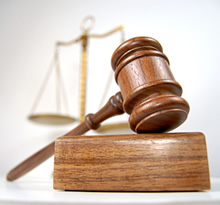.png?width=500&height=280&ext=.png)
By: Carolyn Hendler, JD
To activate and view hyperlinked references, please click once and then click any superscripted number below to access a hyperlinked reference, or scroll down to the bottom of the article to view all hyperlinked references.
On October 9, 2019, the New York Supreme Court denied a preliminary injunction and a stay that would have allowed a mother to send her unvaccinated children to school after the state repealed the religious exemption to vaccination in Public Health Law 2164.1 Although the injunction was denied, in his opinion New York Supreme Court Judge Robert B. Wiggens sternly criticized the Legislature for the new law barring unvaccinated children with religious exemptions from receiving a school education.
The human right to practice one’s religion and the civil right to attend school were disregarded when Public Health Law 2164 was passed by state legislators and signed by New York Governor Andrew Cuomo in one day with no public hearings on June 13 of this year.2 Before the new law was passed, the religious exemption allowed parents or legal guardians with sincerely held religious beliefs opposing vaccination to enroll their unvaccinated children in daycare and public and private schools without being compelled to receive state mandated vaccines recommended by federal health officials and the New York State Department of Health.
Court Cites Legislature for “Callously” Disregarding Citizens’ Rights
In this case, a mother (Plaintiff) brought suit against the State of New York asserting that Public Health Law 2164 violated her family’s freedom of religion under Article 1 and her children’s right to a free public education under Article XI of the New York Constitution. Despite denying the Plaintiff’s request, the New York Supreme Court had harsh words for the Legislature’s action for “callously” disregarding the free exercise rights of citizens in the state. Judge Wiggins stated:
“This case involves a clash between the rights of citizens to live their lives according to their faith, as guaranteed by Article 1 section 3 of the New York State Constitution, and the right of the Legislature to limit that right, purportedly in the name of public health, even where the legislative history, devoid of any committee hearings or substantial debate, suggests that the free exercise rights of its citizens was callously disregarded by the Legislature.”3
Pending the outcome of the lawsuit, the parent Plaintiff had filed for a preliminary injunction to preserve the status quo and allow her children to stay in school without being forced to vaccinate them against their family’s religious beliefs as a condition of receiving a school education. To be granted a preliminary injunction in a New York court, a party must show three things: (1) that they are likely to succeed on the merits or, in other words, win in the end; (2) that they will suffer irreparable harm if the preliminary relief is not granted while waiting for the final judgment; and (3) that the balance of the equities favors their position. In making a determination, the court will look at factors such as public policy and hardship to the parties to determine whether granting relief is fair. 4
The New York Supreme Court reviewed the recent Appellate Court 3rd Department case, F.F., which on August 12, 2019, denied a preliminary injunction to parent plaintiffs seeking the same preliminary injunctive relief from the new law repealing the religious exemption. The Appellate court stated that the plaintiffs “established the potential for irreparable harm” due to “the magnitude of disruption and potential harm they would suffer” should an injunction not be granted.5 The Supreme Court agreed with the Appellate Court that the Plaintiff had the potential to suffer irreparable harm.
Justification for Religious Exemption Repeal Questioned by Court
However, the two courts differed when it came to balancing the equities. The Appellate Court stated that, “it was hard-pressed to conclude that plaintiffs have shown that the balance of the equities tips decidedly in their favor” due to the potential risk the unvaccinated posed to the public who could not be vaccinated for medical reasons or age. 6 The Supreme Court disagreed and instead found that the very small number of children with a religious exemption did not pose a real health threat, stating, “Again there is uncontradicted evidence in the record that children not vaccinated because of a religious exemption make up less than 1% of the population, which hardly seems like a public health crisis.”7
The Appellate Court, reviewing the three criteria a party must show in order to be granted a preliminary injunction, ruled that the plaintiffs did not show a likelihood of success on the merits.8 Even though in its Oct. 9 ruling the New York Supreme Court offered criticism of the new law eliminating religious exemption to vaccination, the Court had to make a decision about whether the Plaintiff had a likelihood of winning the lawsuit on the merits and agreed with the Appellate Court that the plaintiffs were unlikely to prevail.
A lower court generally is required to comply with an earlier decision by a higher court. However, the Court was not bound by the decision in F.F. because the parent Plaintiff in that case argued that her rights under the Federal Constitution were violated, while the Plaintiff in the current case was solely invoking rights under the New York Constitution.9 Therefore, even though the Court was reviewing the same legislation, it could consider the Plaintiff’s argument that the New York State Constitution provides broader protection to religious freedom than the US Constitution.
The New York Constitution states:
“The free exercise and enjoyment of religious profession and worship, without discrimination or preference, shall forever be allowed in this state to all humankind” (emphasis added)10
Court Weighed Rights Under U.S. Constitution vs. New York Constitution
The Plaintiff argued that the inclusion of the word “forever” grants broader rights than those provided for under the US Constitution, which does not use the word, “forever.”
The New York Supreme Court disagreed. While noting that the addition of the word “forever” in the free exercise clause of the New York Constitution could, but not necessarily should, be read to have a broader meaning than the free exercise clause in the US Constitution, the court found that those rights must defer to the latter portion of the clause which states, “the liberty of conscience hereby secured shall not be so construed as to excuse acts of licentiousness, or justify practices inconsistent with the peace or safety of this state.”11
Citing a 1903 case that interpreted “peace and safety” to included health, the Court concluded that the freedom of exercise clause in the New York Constitution may, in fact, grant less protection than the U.S. Constitution because the right to freedom of religion was constrained by the state’s right to enforce legislation that it believed would further the health of its citizens.12
The New York Supreme Court went on to review legal precedents that interpreted the free exercise clause of the New York State Constitution alone, as well as those that followed the U.S. Supreme Court decision, Cantwell v. Connecticut, which made the religion clauses of the U.S. Constitution applicable to all states in 1940. In the end, the Court found that the New York Constitution did not grant the Plaintiff greater rights than those granted under the U.S. Constitution.
The Court applied the rational basis balancing test set forth in the 2006 New York Court of Appeals case, Catholic Charities, which weighed the interest advanced by the legislation repealing the religious exemption to vaccination against the incidental burden to the free exercise of religion and gave the Legislature deference by placing the burden on the Plaintiff to show the law was unreasonable.13 Under this test, the Court concluded that the removal of the religious exemption did not infringe upon the free exercise clause of the New York Constitution, which gives the state Legislature authority to enact laws it believes will protect the public health, including requiring vaccination.
Judge Criticizes Legislature for Using “Draconian Measures”
While it is clear the Court acknowledged it could not go outside legal precedent deferring to the Legislature’s authority to mandate vaccines, the New York Supreme Court Judge Wiggins did not mince words in criticizing the legislature’s passage of Public Health Law 2164. In his concluding remarks, he pointed out that, although the legislature has the authority to deny a school education to unvaccinated children, the legislators could have chosen “less Draconian measures:”
"…I do not believe the Legislation has come close to giving adequate consideration to its own explicitly mandated responsibility to “provide for the maintenance and support of a system of free common school, wherein all the children of this state may be educated (NY Const. Art X1 S1 emphasis supplied) Could not other, less Draconian measures have been chosen, such as, perhaps, providing tutors for the displaced children? Nonetheless, precedent appears to give the Legislature the authority to bar the doors to the unvaccinated, despite the unconscionable consequences that brings.”14
References:
1 Sullivan-Knapp v. Cuomo, No. E2019-1338CV, (S.C. N.Y. Oct. 9, 2019).
2 National Vaccine Information Center. New York Bill Removing Religious Vaccine Exemption Turned Into Law on One Day with No Public Hearings. July 2, 2019.
3 Sullivan-Knapp v. Cuomo, No. E2019-1338CV, (S.C. N.Y. Oct. 9, 2019).
4 1234 Broadway LLC v. West Side SRO Law Project, 86 A.D.3d 18 (N.Y. App. Div. 2011).
5 Sullivan-Knapp v. Cuomo, No. E2019-1338CV, (S.C. N.Y. Oct. 9, 2019) quoting F.F. on behalf of Y.F v. State, 92019 NY Slip Op 292261, 2019 WL 4050472 Supp Ct Aug 23, 2019.
6 F.F. on behalf of Y.F v. State, 92019 NY Slip Op 292261, 2019 WL 4050472 Supp Ct Aug 23, 2019.
7 Sullivan-Knapp v. Cuomo, No. E2019-1338CV, (S.C. N.Y. Oct. 9, 2019).
8 F.F. on behalf of Y.F v. State, 92019 NY Slip Op 292261, 2019 WL 4050472 Supp Ct Aug 23, 2019.
9 F.F. on behalf of Y.F v. State, 92019 NY Slip Op 292261, 2019 WL 4050472 Supp Ct Aug 23, 2019.
10 The Constitution of the State of New York. Article 1 Bill of Rights.
11 Ibid.
12 People v. Pierson, 175 N.Y. 201, 211, (1903).
13 Catholic Charities of Diocese of Albany v. Serio, 7 N.Y.3d 510 (N.Y. 2006).
14 Ibid.









Leave a comment
Your email address will not be published. Required fields are marked with an *